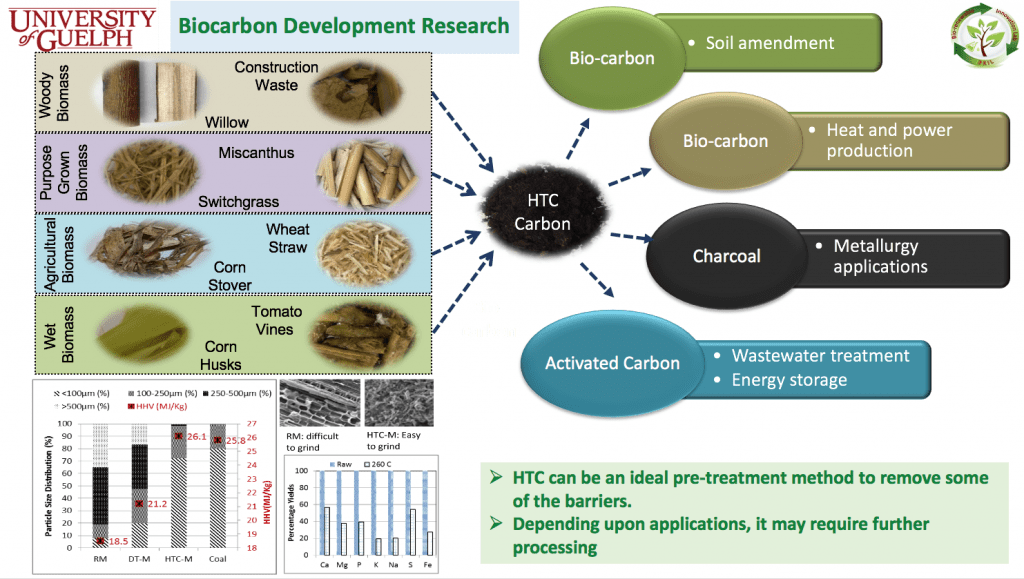Bio-Carbon Production
- Biomass and agri-residue processing and conversion
- Renewable material and cleaner energy technologies
- Boiler design
- Design and assessment of advanced energy systems
- Life cycle analysis and thermodynamic optimization
BRIL’s research focuses is on renewable resource utilization for energy technologies, proceses and products in the changing global context. The broad objective of his research program is to help Canada better meet the challenges of climate change and environmental degradation through advanced biomass conversion technologies and CO2 sequestration.
BRIL aims to be a center for national research and innovation partnerships which will help to create new or improved technologies to overcome technical hurdles associated with the conversion of Canada’s particular range of low grade fuels. These fuels range from woody biomass to agricultural and municipal wastes. Various challenges presently exist, which limit the economic viability and operational reliability of conversion for these types of fuels. Research themes to explore include biomass conversion technologies, H2 production, and materials for gas clean-up prior to carbon sequestration.
The current focus of the research is to investigate and evaluate the implementation of thermochemical conversions of biomass (agricultural and forest residues) to achieve large-scale commercial production of renewable fuel, energy and materials for industrial applications and power generation. In the efforts to accomplish these objectives, team of experienced academia, industry, and government professionals has been put together to collaborate expertise in biomass conversion, design, modeling and in-depth understanding of process characterization, and process optimization.



